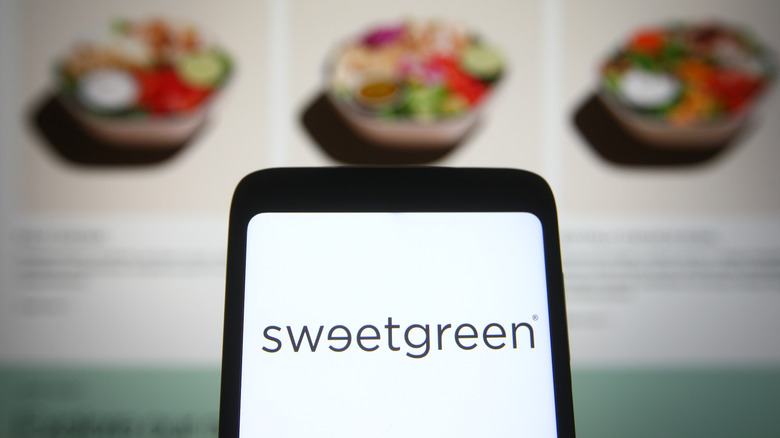Sweetgreen's New Initiative Tells You Which Menu Items Have The Smallest Carbon Footprint
On the menu board at fast-casual salad giant Sweetgreen, you'll find information on calories, protein, carbs, and fat under each item. Now, the franchise has added a new category that lets customers know which salads require the least amount of carbon to produce, stepping up to its billing as a purveyor of "fresh, plant-forward, earth-friendly food."
The edit comes along with the rollout of Sweetgreen's Low Carbon Collection menu and its inaugural impact report, both of which launched in time for Earth Week. Among other things, the report shows that the chain has cut back its carbon emissions by 12% since 2019. Sweetgreen is in good company with fellow major brands, such as Chipotle, which changed its store design to reduce 2019-level greenhouse gas emissions by half by 2030. Meanwhile, fast-food chains such as McDonald's and Wendy's also have plans for lowering greenhouse gas emissions in the next decade.
Sweetgreen has also added a new low-carbon menu item and is taking other initiatives toward sustainability.
The Hummus Crunch Salad is made with regeneratively farmed chickpeas
The Hummus Crunch Salad is the newest menu item to come to Sweetgreen, and it's also the most environmentally friendly. According to an April 18 press release, the salad contains a scant 0.3 kilograms of carbon emissions, which is lower than any other menu item at the chain. Food Dive says the salad is made with regeneratively farmed chickpeas, meaning the peas were likely planted without soil-disturbing fertilizers or tilling.
The Mediterranean-inspired salad has olives, tomatoes, cucumbers, shredded cabbage, red onions, basil, za'atar breadcrumbs, chopped romaine, shredded kale, and pesto vinaigrette, plus hummus and whole chickpeas.
Since its founding in 2007, Sweetgreen has invested in small farms instead of national suppliers. More recently, Sweetgreen has switched to 100% clean energy, using solar power from North Carolina. The company has also reduced emissions by composting or recycling 79% of its restaurant waste.

